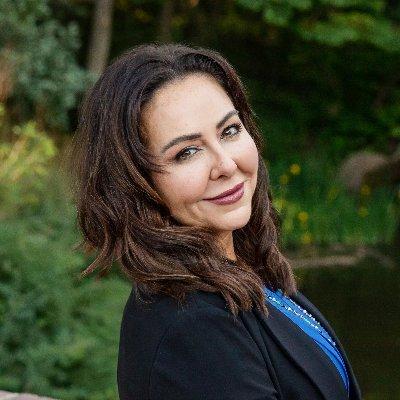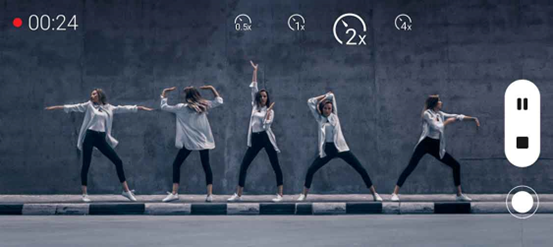The 2022-23 Gilbert Goldstein Faculty Fellowship has been awarded to Colorado Law Professor Kristelia García. Awarded by the Dean, the fellowship provides one semester without teaching responsibilities to enable concentration on research and writing.
Professor García teaches Copyright, Property, and Trademark and Unfair Competition Law and serves as Director of the Intellectual Property Initiative at the Silicon Flatirons Center for Law, Technology, and Entrepreneurship.
She graduated from Columbia University with a B.A. in Economics and earned her J.D. at Yale Law School where she served as editor-in-chief of the Yale Journal of Law & Technology. She is a member of the American Law and Economics Association and the Society for Empirical Legal Studies.
Gilbert Goldstein ‘42, for whom the fellowship is named, is remembered not only as a tremendously successful graduate of the law school, but also as a longtime, dedicated supporter of the greater Denver legal community. The MDC/Richmond American Homes Foundation established the Gilbert Goldstein Fund in recognition of his dedication and generosity. The fund includes scholarships and fellowships to deserving Colorado Law students and faculty.
“Professor García is incredibly well-deserving of a Goldstein fellowship!” said Colorado Law Dean Lolita Buckner Inniss, “Her scholarship digs into endlessly fascinating questions and garners avid attention from fellow scholars, popular media, and, not least of all, her students. We are on the edge of our seats about what comes next.”
The law school’s Robyn Munn spoke with Professor García about her upcoming semester of research.

RM: Thank you so much for taking some time to chat! Let’s get right to it. Would you tell us a bit about your research and your plans for the Goldstein Fellowship?
KG: Of course! I’ve written a lot already about how the law that protects music, art, and films tends to presume that content owners and people who use copyrights all want the same things. And, as you can imagine, that is just not true when it comes to real life. Much of my scholarship has challenged the “one size fits all” approach. So, I want to take these same questions and ideas around when parties act in ways that surprise us under the law and look specifically at enforcement.
RM: Enforcement of copyright law?
KG: Among other fields, yes. I imagine the project proceeding in two parts. First, I’ll be looking at enforcement decision making—when parties decide to enforce their right and when they don’t. And second, I’ll consider when people outsource that decision, when the rights holders aren’t even the ones making the decision about whether rights should be enforced.
I want to know what those behaviors tell us about how representative the law is of reality, how good of a job it’s doing accomplishing its purported goals, and whether there are certain groups who are particularly impacted by this. My hope is that this research goes beyond copyright law, to include examples from other fields like property, criminal, and tort law. What does it look like when parties decide not to enforce their rights, and who’s impacted by that?
RM: Fascinating! Where do you begin when tackling an ambitious line of inquiry like this?
KG: I personally begin with the notions that have come to me from other projects. For instance, I have ideas about places where rights-holders overreach and where the law is a mismatch for what’s happening on the ground. Then I find examples that illustrate what I think is going on.
Take for example when you hear about Taylor Swift’s unexpected strategy in the battle for rights over her master recordings. Why is that happening? Or when you hear about disgruntled YouTubers complaining about a new policy and their content being taken down. The research helps me decide if the examples prove or disprove my theories.
RM:How does having a break from the demands of teaching impact your ability to dive into this research?
KG: The idea behind these kinds of fellowships is that, while teaching is far and away one of the best and most rewarding parts of our profession, it is really time consuming. For every hour of teaching there are days and even weeks of preparation. And there are office hours, supervising student groups, commenting on papers, supervising projects, and grading. Law school exams are not easy reading.
The goal behind this is not just to receive the gift of time, which is super valuable, but also the gift of a mental reprieve. So, I can devote all my mental energy to the question that I’m puzzling through. Not having to split my thinking should give me a chance to make more progress and really bury myself in research.
RM: Do you anticipate there will be any kind of student involvement?
KG: Absolutely. This will be a great opportunity to bring in students who can help me with the actual research. Being a research assistant (RA) is a phenomenal learning experience. RA’s get a feel for the scholarly side of the law that they’re studying (even if they don’t plan to be professors). And, importantly, these assistantships give students a chance to build a closer relationship with a professor who can then become a recommender, provide a reference letter, or chat with a judge about a clerkship. So, hopefully I’ll be able to incorporate some research assistants.
RM: Did you read that, law students? Sounds like a great opportunity! Thank you again for your time, Professor. I can’t wait to learn more.
KG: The feeling is mutual!




